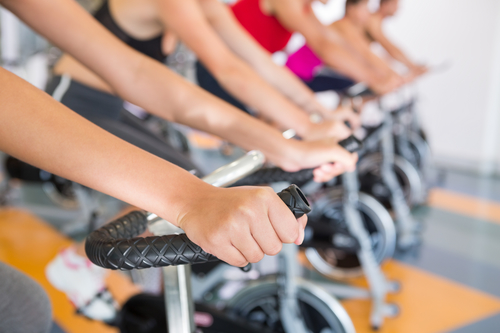 There’s a time to compete and there’s a time not to. Most of the time, it’s the time not to, yet people are constantly competing against others and themselves.
There’s a time to compete and there’s a time not to. Most of the time, it’s the time not to, yet people are constantly competing against others and themselves.
While there is nothing wrong with wanting to do better, many people fall into the trap of competing against themselves and using negativity, labels and name calling, and personal put-downs.
Striving to improve from a place of self-acceptance and comfort with who you are is one thing. Criticizing yourself because you aren’t the fastest, don’t have the enough medals or aren’t on the cover of the magazines, that’s another.
Leon Festinger carefully looked into this style of thinking in 1954 and called it, “social comparison theory.” Simply, this means that people have an innate propensity to evaluate their skills and performances and often compare themselves to others when there is not objective feedback available. But this comparison is a distraction at best. At worst, it leaves us feeling like we are failures, convinces us that we are fixed in our abilities and predicts futures of poor performance. Thus, instead of understanding that the run you are on is yours, not anyone else’s, you are constantly trying to be someone you aren’t. That’s not healthy.
It’s been said that at 20, we worry about what others think of us and at 40, we don’t care what others think of us. As someone who has passed 60, my friends and I now realize that nobody was thinking about us to begin with. They were running their own run while we were busy trying to run theirs.
My father, uncle and grandfather had shoe stores when I was growing up. I worked in them from the time I was seven years old. One day, my grandfather brought me outside to teach me an important lesson. He pointed at the competitor down the street. The owner was standing in front of his store watching the people come into our family’s store and walking out with bags of shoes.
“Michael,” my grandfather told me, “You see what that guy is doing? He’s watching our store instead of his own. He’s angry that nobody is buying shoes from him. He’s too busy taking care of OUR business instead of his own. When you grow up, run your own store, and don’t watch anyone else’s.”
Sure there is a time to compete. Running in a race? You are competing to win. But those times are rare in life. Stay away from constantly competing, delete those who push you to be something you aren’t and run your own run, live in your own home, drive your own car, wear your own running shoes, and run your own store—don’t watch anyone else’s. You’ll fail for sure.
Here’s how I coach athletes, business leaders and everyday folks who suffer from their own compare and despair thinking:
- Who are you? What’s unique about you that makes you different than anyone else? What’s that voice inside telling you who you are? Be sure you are fully aware, self-accepting, and completely content with the answer to that question. Focus on being the best YOU, not a second rate someone else.
- What’s it take for you to unfold, reveal and unpack the genuine, authentic you? Run your run the way you want to. I saw someone in the gym recently copying every move I made with a set of dumbbells, including the amount I was lifting. He was trying to lift my dumbbells, not his. Not smart, right? He needed to lift his own dumbbells, the way his body and muscles and strength permitted, not the way mine did for him.
- Don’t DIE. Huh? That means, don’t Demand, Insist and Expect that YOUR performance be better or even match the person with whom you are running.
- Hear the fixed beliefs you have about yourself, understand you have a choice as to how you think about yourself in relationship to others when you put on your running shoes, challenge and then replace those thoughts that leave you thinking negative about yourself and your performances.
- Enjoy your run. Your own run.
Michael R. Mantell, Ph.D. has served as an Assistant Clinical Professor in the Department of Psychiatry at the University of California, San Diego and as the Senior Fitness Consultant for Behavioral Sciences for the American Council on Exercise. He is a behavioral sciences coach and consultant, an Advisor to many fitness and health organizations, a member of the Scientific Advisory Board of the International Council on Active Aging, the Chief Consultant for Behavior Sciences for the Premier Fitness Camp at Omni La Costa, a presenter for Rancho La Puerta, a best-selling author and an international fitness-health speaker. In 2013, Greatist.com named Dr. Mantell as one of “The 100 Most Influential People in Health and Fitness.”


What an inspiring word from Michael Mantell. His words remind us that we are unque and special regardless of what label the world may apply to us.
Run your run; your own run,,,,,, what sage advice.
So true !! will keep that in mind. Thanks
Picky, picky–but it’s “Whose run,” not “Who’s run.” “Who’s” means “Who is,” as in “Who’s (who is) running today?
Good blog, though.
Oops, you are correct! Thank you 😉
Always good to be reminded of the flawless effect overall positivity can have on your fitness regime.